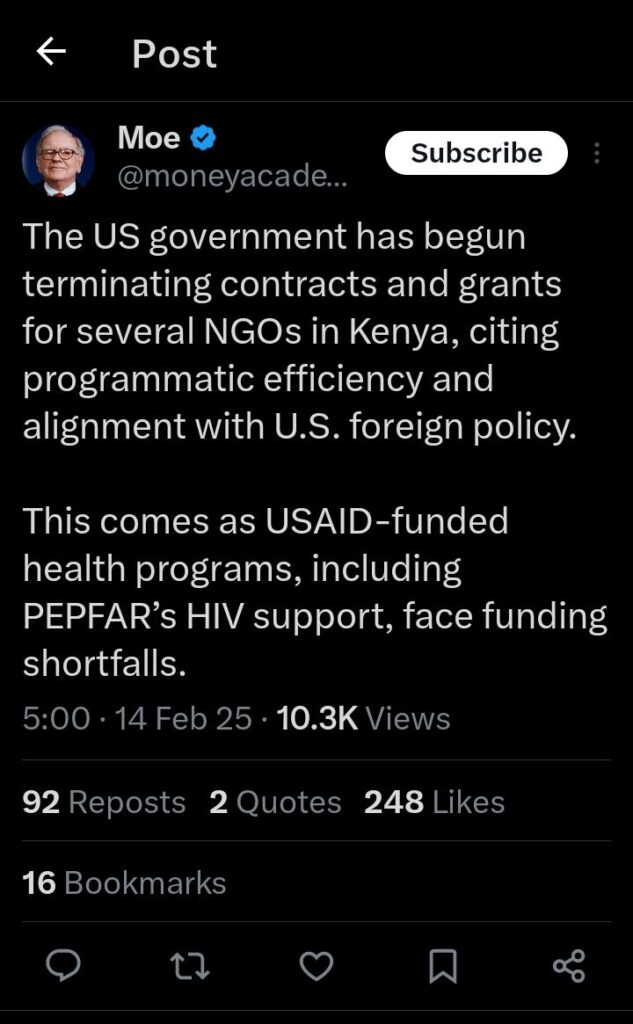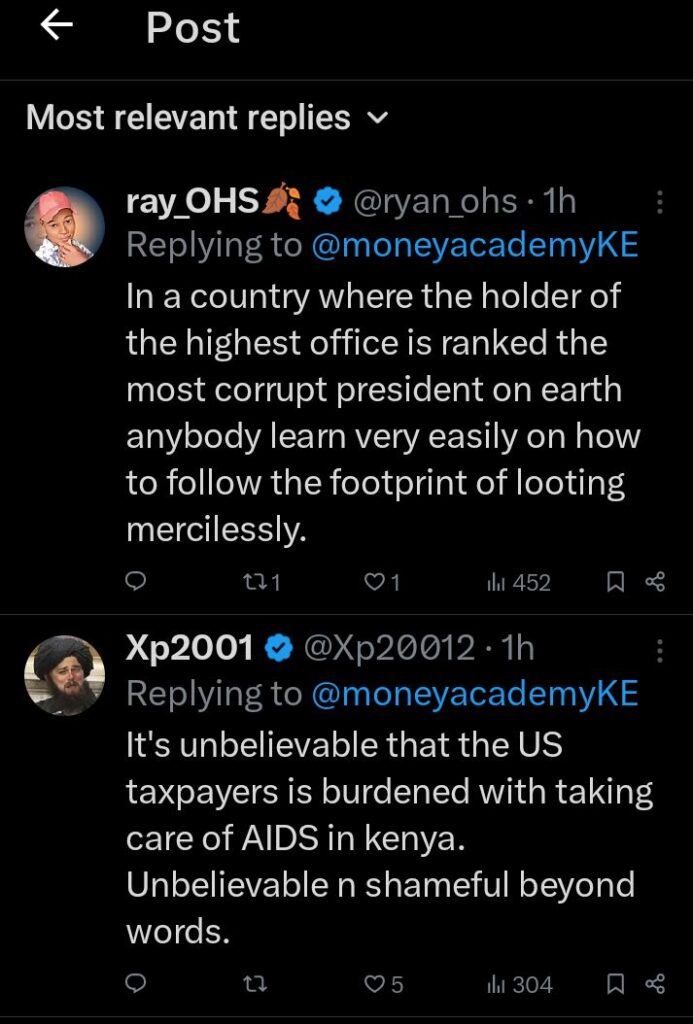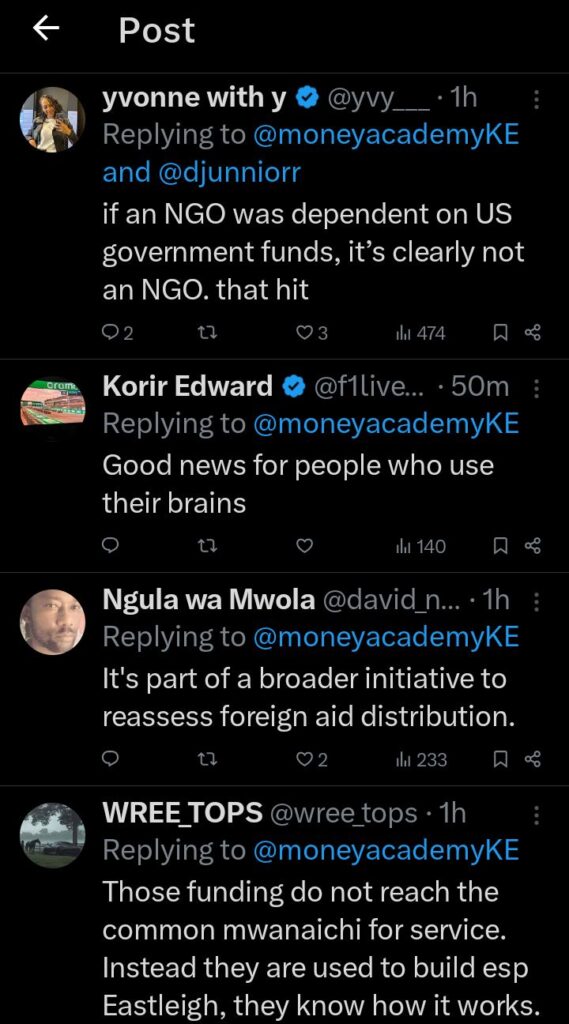The US government has started canceling contracts and grants for many NGOs in Kenya, saying they no longer fit its foreign policy goals or are not efficient enough.
This move has raised concerns, especially because some of these organizations run important programs that support healthcare, education, and development projects across the country.
Many of these NGOs rely heavily on US funding to operate, and their closure or reduction in activities could have serious effects on the communities they serve.

One of the most affected areas is healthcare, where USAID has been a major supporter of programs tackling diseases like HIV, malaria, and tuberculosis.
The cuts are already being felt in the fight against HIV, where PEPFAR, a US-funded initiative, has played a big role in providing life-saving drugs and support for those living with the virus.
With funding shortfalls now hitting PEPFAR, there are fears that many people who depend on the program for treatment and counseling could be left without help.
Health workers who have been employed under these programs are also at risk of losing their jobs, which could further weaken Kenya’s healthcare system.
Besides health programs, other development initiatives funded by the US government are also affected. Many NGOs that focus on education, poverty reduction, and women’s empowerment depend on US support to run their operations.

Without these funds, schools that provide education to underprivileged children might be forced to shut down, and programs that help young girls stay in school could be halted.
The withdrawal of funding could also affect projects aimed at improving agriculture and food security, leaving small-scale farmers without the resources they need to increase their productivity.
The US government’s decision is seen as part of a shift in its foreign policy, where it wants to focus on programs that directly serve its strategic interests. Some analysts believe this could be linked to the US government’s efforts to cut costs and redirect resources to other priorities, including its geopolitical interests in other parts of the world.

However, the sudden move to terminate contracts and cut grants has left many organizations struggling to figure out how to continue operating without US support.
Kenya has long been a major recipient of US aid, and these recent changes raise questions about the future of foreign assistance in the country.
If more funding is withdrawn, the government and local organizations may need to find alternative sources of funding to keep critical programs running. While some NGOs might manage to secure support from other international donors, many smaller ones could be forced to shut down, leaving a gap in services that millions of Kenyans rely on. The full impact of these funding cuts will likely be seen in the coming months as affected organizations try to adjust to the new reality.





















Add Comment